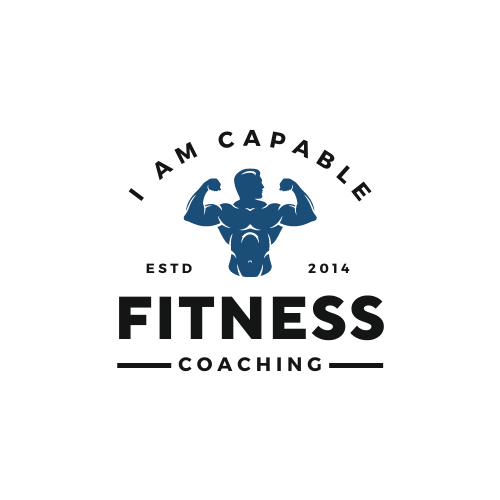With the increasing trend of health and wellness, more people are opting for a nutritious lifestyle. One way to do this is by tracking calories – counting the number of calories you eat each day and making sure it doesn’t exceed your daily caloric requirement. Counting calories can be beneficial in helping not only with losing weight, but also managing and maintaining your overall health. This blog post will provide helpful insights into what calorie counting is, why it may be useful to consider tracking calories, and how you can easily incorporate calorie-counting into your everyday routine. Get ready to discover the advantages of incorporating calorie-tracking as part of your balanced diet plan!
Understand Your Calorie Intake and Setting Goals to Achieve Your Weight Loss Target
Keeping track of your daily calorie intake can be a powerful tool in helping you reach your fitness goals, whether that means losing weight or simply being more mindful of what you are consuming. Not only will counting calories help you understand the amount of energy you’re putting into your body each day, it also allows for a better sense of portion control, making it easier to set realistic and beneficial health targets for yourself. Being aware of the nutritional value of what goes on your plate will ultimately lead to healthier lifestyle changes, allowing you to achieve your weight loss goals with confidence and peace of mind.
Monitor Nutrient Consumption for Optimal Health
As we strive to become healthier and fitter, many of us turn to monitoring our food intake. Tracking your nutrient consumption is an important part of mindful eating, and can be extremely useful as you work towards optimising your health. By paying close attention to how many calories you are consuming each day, as well as what types of foods those calories come from, you can significantly improve your health outcomes for the better. Not only will this help you to gain insight on which foods may benefit or hinder progress towards your fitness goals, but it also encourages mindful eating over mindless snacking. Becoming more aware of what exactly goes into your body each day can do wonders for improving both physical and mental well-being.

Get a Better Understanding of Portion Size When You’re Eating out
When eating out, it can be difficult to gauge a proper portion size for your meals. Counting calories, however, can help you develop a better understanding of portion sizes. Doing this will improve your diet, physical and mental health, and fitness goals all in one go! Keeping track of your calorie intake puts you in control of your nutritional intake, and helps to create a mindful relationship with food that enables you to reach the desired level of nutrition for your body. Consistently tracking your calorie consumption when eating out can also allow you to make adjustments to meet specific dietary requirements or goals. Ultimately, counting calories is an excellent way to achieve better diets and greater dietary awareness when dining out.
Learn How to Distinguish Good Calories From Bad Calories
Learning how to distinguish good calories from bad calories can be a helpful tool when trying to maintain a healthy and fit lifestyle. Good calories are those that provide essential vitamins and minerals, while bad calories do not offer any nutritional value. To achieve an optimal balance of good and bad, it is important to focus on whole foods like lean meats, fruits and vegetables, as well as healthy fats such as avocado, coconut oil, or nuts. Though it may take some time, understanding which sugars, carbohydrates and other processed foods can be conducive to fitness goals is key in making the best possible choices for your overall health.

Calculate the Caloric Balance between Food Intake and Exercise
Calculating the caloric balance between food intake and exercise is a useful way to manage your fitness and health goals. When you’re aware of the calories consumed throughout the day, this information can be compared to your body’s calorie needs and adjusted accordingly. Achieving that ideal balance involves creating an eating plan that provides essential nutrients and vitamins needed for energy, coupled with targeted physical activity to ensure you are getting the amount of exercise needed. Knowing how much or how little to eat makes it easier to reach your weight related goals in a healthier fashion. With some dedication and discipline, calculating caloric balance can give you better control of your diet and help transform your lifestyle into a healthy one.
Use Calorie Tracking as a Tool to Stay Motivated and Accountable
Using a calorie tracking tool is an effective way to stay motivated and accountable when it comes to fitness and health. Keeping a record of the food you consume can help you make healthy choices that align with your fitness goals. Setting daily or weekly goals for calorie consumption means you can track your progress, allowing you to view tangible evidence of how you are progressing toward achieving your desired outcomes. With this knowledge, you can adjust your strategy accordingly and create an action plan that works for your individual needs. Calories provide insight into where improvements – or indulgences – can be made, fostering success by offering an organised and manageable way to shape up your lifestyle.
By understanding the key benefits of calorie tracking, it is evident that counting calories does have its rewards. Tracking the intake of food and beverage equips us with the knowledge and skills to know exactly what goes into our bodies. To put all these points together – take the time to understand your caloric requirements before diving into a plan and while doing so, remain mindful of portion sizes when eating out and make sure to distinguish between good and bad calories. Have you ever tracked your calories? Let us know how it went!

